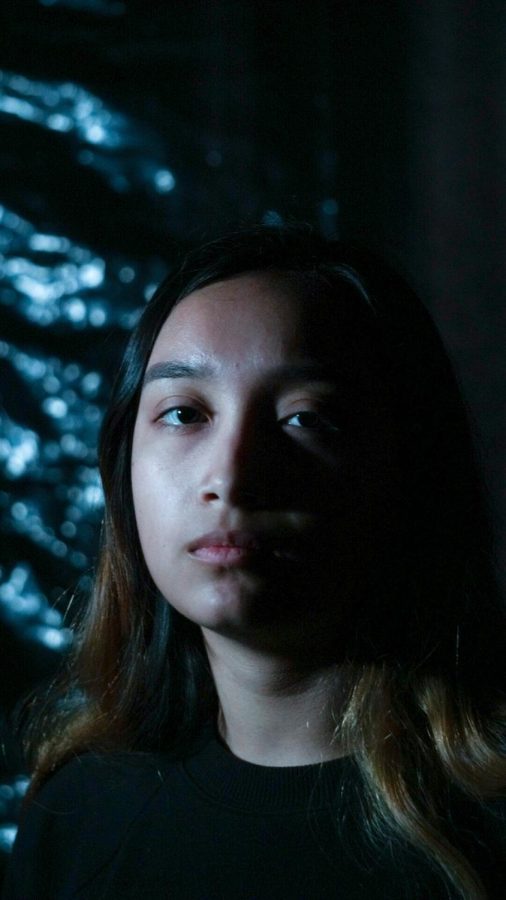Cold Hands, Warm Heart
Senior Stephanie Anderson suffers from Raynaud’s Disease.
Stephanie Anderson – Class of 2022
February 15, 2022
Autumn. Leaves begin their descent from their high perches. Winds pick up, fluttering the fallen around the ground. Days begin to shorten as stars dawn the sky for longer. The beautiful, unique colors often capture attention. Some look forward to this time of year. Whether for the characteristics listed or for holidays to come, most tend to enjoy this time. For Senior Stephanie Anderson, however, this time of the year is the most dangerous.
Anderson constantly had her room’s heater on, even during summertime. She has always used multiple blankets to cover up and gravitated towards thicker, warmer clothes.
“I thought it was normal to turn purple when you get cold,” Anderson said.
It was not until her father noticed her strange reaction to the weather that Anderson was taken to the hospital.
“He originally had wondered if it had something to do with a lack of certain proteins or nutrients, but once we got there, they took some blood tests and told us I had Raynaud’s Disease,” Anderson said.
First discovered in 1862, Maurice Raynaud, a French Medical student, characterized this disease by highly localized cold-induced spasms of small blood vessels that disrupt blood flow to the extremities-such as toes, fingers and tips of the ears and nose.
Raynaud’s disease can have these common symptoms, but in severe cases according to John Hopkins Medicine research, this disease can lead to sores on the body and Gangrene, a dangerous and potentially fatal condition that causes infection or the need for amputation due to the risk of hypothermia.
However, accompanying the cold, the disease can be triggered in response to stress or emotional upset as well. Anderson also has been diagnosed with disorders such as anxiety, depression, post-traumatic stress disorder and obsessive compulsive disorder, which often lead to excessive stress.
“With my depression constantly in the back of my mind, [I] doubt myself and [wonder] if I actually am worth anything. At a certain point, I start to believe I’m just a nuisance.”
To handle the stress, Anderson turns to her hobbies. She enjoys music, and on her stressful days, Anderson listens to her somber music to cope.
“Songs that make me sad when I’m stressed [make me] feel a lot better because it feels as if a heavy burden has been lifted from my chest,” Anderson said.
Anderson is also a member of the Bryant band program. She plays the flute during the day at school and occasionally practices in her free time at home. Her condition makes her struggle to play for long periods of time, but Anderson still enjoys playing.
“I don’t produce much body heat in general, especially from my hands, so the buttons on my flute are always cold, mak[ing] my hands colder since it’s not giving off any heat,” Anderson said.
Despite knowing the risks, Anderson chose to perform in the Legacy’s 2019 show “Somewhere” as well as assisting in the shows “The Technicolor Kaliver” and “Sterren Nacht”. She also attended football games to play in the Friday Night Band. Anderson’s friends often helped her try to stay warm during the football games and occasionally would bring extra clothing for her to wear over her already 2-3 layers of clothes.
“They also would constantly hug me to try and keep me warm,” Anderson said. “Sometimes they would have to take my hands and attempt to keep them warm by blowing on them constantly, holding my hands or rubbing them.”
Anderson has, however, dealt with people that believe she is being dramatic about her symptoms. After dealing with both sides of people’s reaction to her disease, Anderson would like others to understand that people with diseases are capable and still human.
“They should not be treated like a hindrance, but they also should not be treated like a baby,” Anderson said. “Depending on what condition they have, they should be treated fairly normally, unless they state otherwise and need extra care.”
Anderson appreciates the help given by others and their concerns over her conditions. However, she does not want her conditions to be the only thing people think of her.
“I honestly like [to be] treated like a normal person. Yeah, I have a lot of issues, but if I need help I will let [others] know. I don’t want people coddling me my entire life,” Anderson said.
Despite Raynaud’s disease, the mental conditions and the stress of daily life, Anderson understands that her feelings are important to recognize, and she would like to advise others that it is not wrong to express your negative emotions, as these emotions can assist during dark times.
“It’s comforting to know that it’s okay to hurt. [You] can put a lot of stress and pain on you[ourself] when you try to keep it bottled up, so it’s always good to cry and allow yourself the time to not be okay,” Anderson said. “In the end, you find your own strength to continue, even if that takes a while.”





